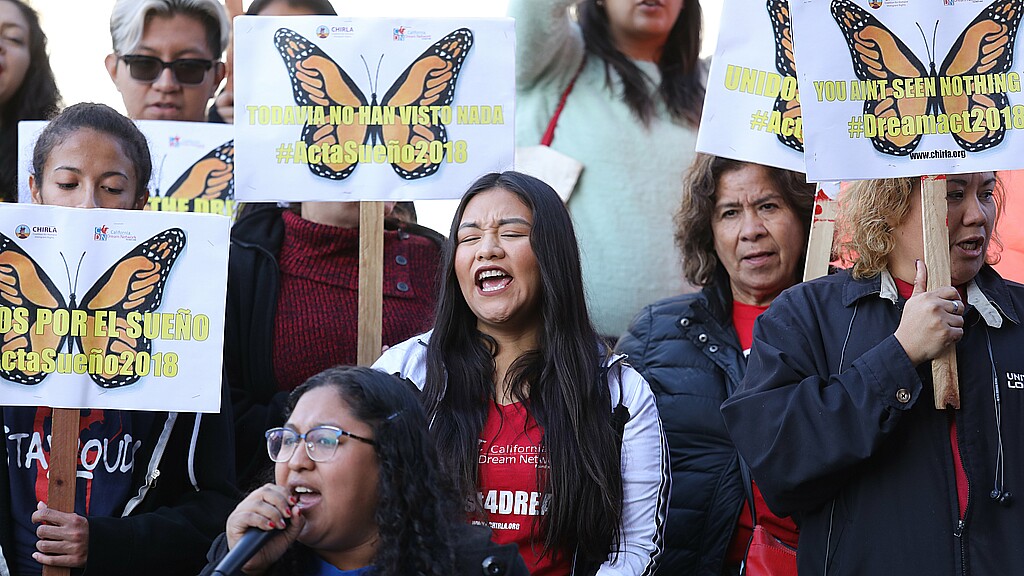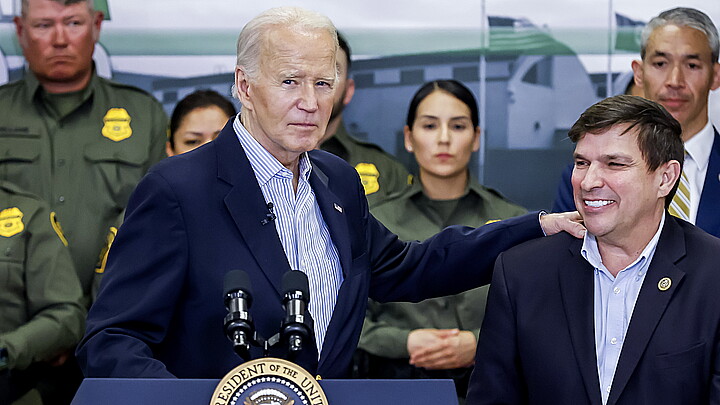Immigration
DACA recipients await U.S. appellate court decision amid six-year legal battle
About 580,000 DACA recipients and their families are eagerly waiting for a decision as several states continue to argue the former Obama-era regulation has created an unfair financial burden

October 14, 2024 9:09am
Updated: October 15, 2024 8:49am
The future of young immigrants shielded by the Deferred Action for Childhood Arrivals (DACA) program was the subject of an intense legal debate on Thursday in the U.S. federal appellate system.
President Barack Obama implemented DACA in 2012 as an executive order, making it possible for eligible young people who came to the U.S. as children to work and study without facing deportation.
Lawyers representing immigrants protected by the executive order defended the program before a panel of three judges at the New Orleans based Fifth U.S. Circuit Court of Appeals on Thursday.
Their arguments were part of an ongoing six-year legal battle, which began in 2018 when Texas and eight other Republican led-states challenged the program’s legality.
Since then, an order implemented by the federal court system has temporarily kept the DACA program in place but left the question of its ultimate legality unresolved. Now, six years later, attorneys from the Biden administration are arguing that Obama’s executive order should be turned into a federal regulation to help establish the program’s credibility and survival.
The debate is the source of great contention in the U.S. immigration debate and dates back 12 years to when Obama first signed the order. Republican-led states have argued that they have suffered damages and injuries because they have spent millions helping support DACA recipients.
Lawyers for the Biden administration have argued that the Republican-led states have failed to prove this and that eligible young adults who came to the U.S. as children when Obama signed the DACA order should be allowed to remain.
Nina Perales, vice president of litigation at the Mexican American Legal Defense and Educational Fund who also works as an attorney representing DACA recipients, said the Republican-led states lack “standing,” a critical court threshold that requires plaintiff to establish that have suffered a concrete injury in fact.
"Because of that, we argue that Texas lacks standing to sue and that the case should be dismissed," Perales told journalists during a Thursday afternoon telephonic press conference.
Thursday’s arguments are now under consideration by the New Orleans appellate panel, and they could rule in various ways.
The court could dismiss the case, refer the case back to the lower U.S. District Court from where it originated, or it could rule against the Biden administration, prompting the government to appeal to the U.S. Supreme Court.
Appeals to the Supreme Court are not granted automatically however and are decided on a case by case basis after a petitioner submits a request to be heard. This request is known as a Writ of Certiorari.
In the meantime, the case has raised emotions and led to heated up debates even outside the courtroom. Hundreds of protestors appeared outside the New Orleans based Fifth U.S. Circuit Court of Appeals on Thursday to voice their opinions about the law.
Many of the demonstrators were actual DACA recipients who wanted the court to know how the law could directly impact them.
Gaby Pacheco, the Director of Advocacy, Development and Communications of an immigration advocacy organization calledTheDream.Us that helps young immigrants complete college told NBC Latino it was an emotional experience.
"As we were asked to all rise, I looked to my left, I looked to my right, and I got to see all those people who once upon a time were children and today are adults and are young people with so much desire to continue to belong to their community, to the country that they have called home for a very long time," she said.
María Rocha-Carrillo, 37, who traveled to New Orleans all the way from of New York, to attend the hearing said she has built a life for herself in the United States as a teacher even though she was Mexican born. “I live here. I work here. I own a home here,” Rocha-Carrillo she told NBC.
According to United We Dream, a nationwide immigrant youth-led network, the typical DACA recipient has lived in the U.S. for more than 16 years. Nearly half of DACA recipients are married and about half of them have children who were born in the U.S.
"They are Americans in every way except on paper," Pacheco argued.
Lawsuits filed by President Donald Trump’s Justice Dept. have tackled DACA’s legality, and a federal judge overseeing the case has repeatedly declared it illegal without actually terminating the Obama program.
Last year, that jurist, U.S. District Judge Andrew Hanen declared the program illegal but said DACA recipients could renew their status for the time being every two years while keeping the program closed to new applicants.
The result of his decision meant that 580,000 DACA recipients could renew their status but 400,000 people who might have been eligible were prevented from applying for the legal status including an estimated 93,000 first-time applicants who have been waiting for three years for a legal determination.
In a prior interview with NBC on Sept. 14, United We Dream Senior Political Director Bruna Sollod said the impact of permanently outlawing DACA could be significant not only for the Latino recipients but the U.S. economy:
“Imagine hundreds of thousands of young people who have jobs right now, have mortgages, car payments, small businesses and clients that rely on them,” she explained. “That has a huge impact on the economy and on communities across this country. I don’t know what else we need to say to make elected officials and the Biden administration understand the threat that we are facing.”










